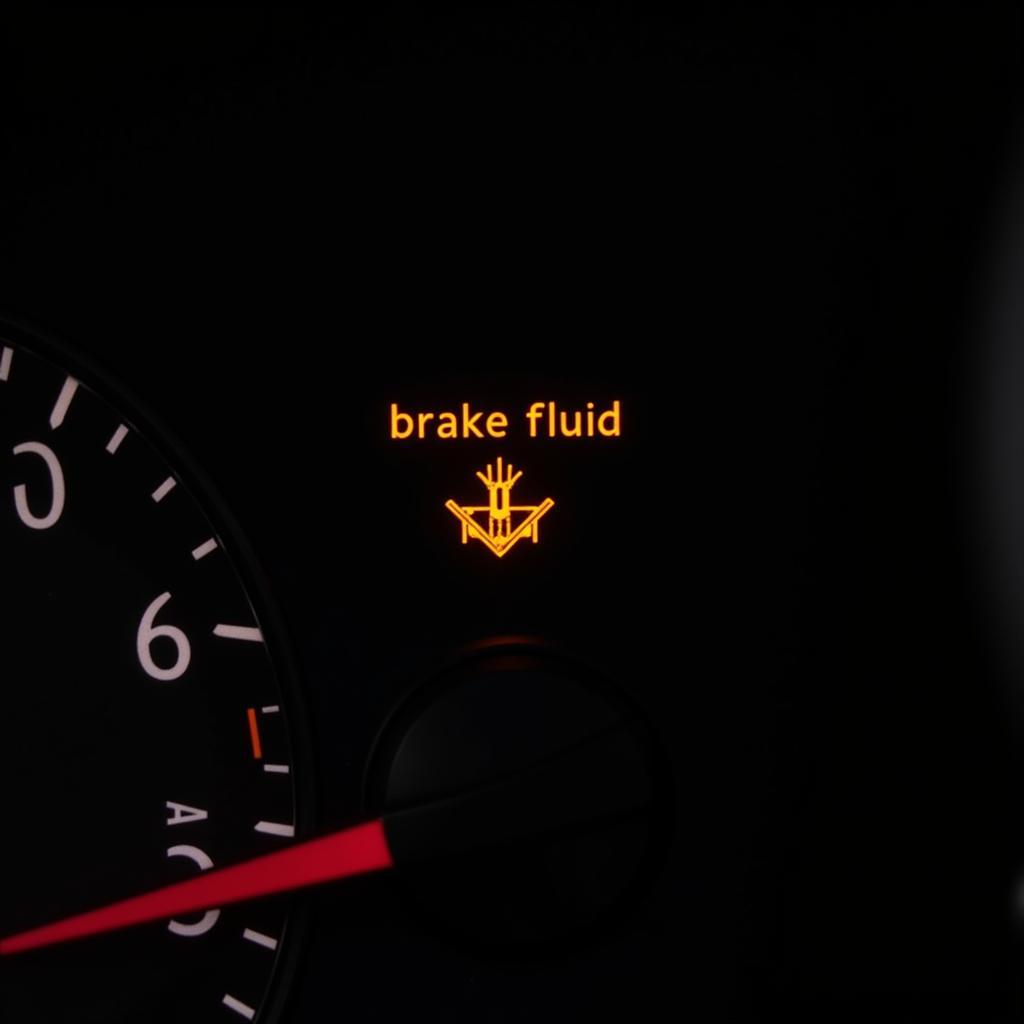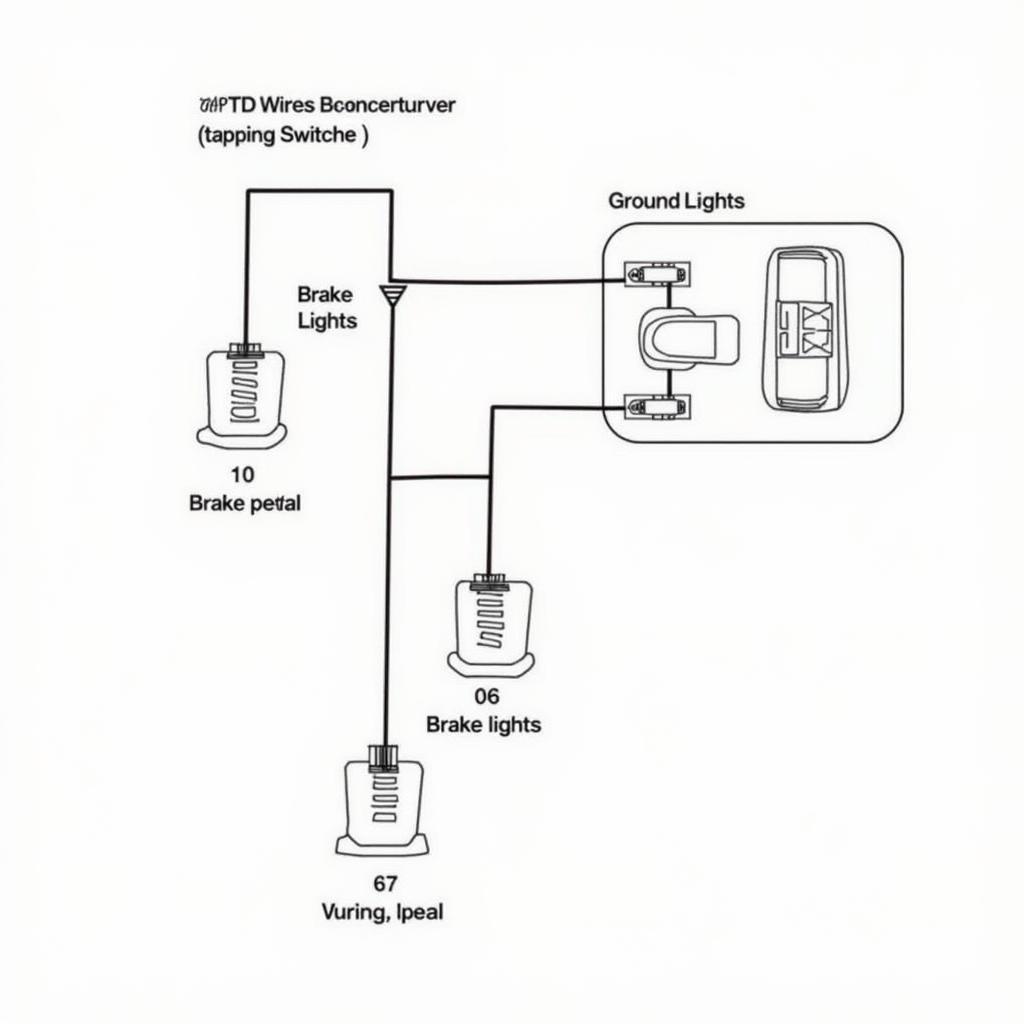A glowing diesel engine exhaust brake warning light can be a cause for concern for any driver. This light indicates a problem with the exhaust brake system, a crucial component in many diesel vehicles that helps to slow down the vehicle and reduce wear and tear on the regular brakes.
This comprehensive guide delves into the intricacies of the diesel engine exhaust brake warning light, covering its possible causes, troubleshooting tips, and potential solutions.
Understanding the Diesel Engine Exhaust Brake
Before we delve into the warning light, it’s crucial to understand how a diesel engine exhaust brake works. In essence, it restricts the flow of exhaust gases, creating back pressure within the engine. This backpressure acts as a retarding force, slowing down the engine and, consequently, the vehicle.
This braking system is particularly beneficial when:
- Descending steep grades: It helps prevent overheating of the regular brakes.
- Towing heavy loads: It provides additional braking power for safer control.
- Driving in hilly or mountainous terrain: It reduces the strain on the regular brake system, extending its lifespan.
Common Causes of the Exhaust Brake Warning Light
There are several reasons why your diesel engine exhaust brake warning light might illuminate. Here are some of the most common culprits:
1. Malfunctioning Exhaust Brake Valve
The exhaust brake valve is responsible for opening and closing to control the flow of exhaust gases. If this valve is stuck open, closed, or is not operating correctly, it can trigger the warning light.
2. Faulty Sensors
The exhaust brake system relies on sensors to monitor various parameters such as exhaust pressure and temperature. If any of these sensors malfunction, they can send erroneous signals to the vehicle’s computer, resulting in the warning light appearing.
3. Electrical Issues
Like any electrical system, the exhaust brake system can be susceptible to wiring issues, loose connections, and faulty fuses or relays. These issues can disrupt the flow of electricity, causing the warning light to activate.
4. Problems with the Engine Control Unit (ECU)
The ECU is the brain of your vehicle, managing various systems, including the exhaust brake. A malfunctioning ECU can misinterpret data or fail to control the exhaust brake properly, leading to the warning light.
5. Mechanical Issues
While less common, mechanical problems within the exhaust system, such as a blocked exhaust pipe or a faulty actuator, can also trigger the warning light.
Troubleshooting the Exhaust Brake Warning Light
If your diesel engine exhaust brake warning light comes on, it’s essential to address the issue promptly. Here’s a step-by-step troubleshooting guide:
-
Check the Basics: Ensure the exhaust brake is engaged. Sometimes, the warning light might indicate the system is simply turned off.
-
Inspect the Exhaust System: Look for any visible damage to the exhaust pipes, muffler, or other components.
-
Check for Error Codes: Many modern diesel vehicles have onboard diagnostic systems. Using a code reader, you can check for any stored error codes related to the exhaust brake system.
-
Consult a Professional: If the problem persists, it’s best to seek the help of a qualified mechanic specializing in diesel engine repair. They have the expertise and tools to diagnose and fix the problem accurately.
Importance of Addressing the Warning Light
Ignoring the diesel engine exhaust brake warning light can have several consequences:
- Reduced Braking Performance: A malfunctioning exhaust brake can lead to decreased braking power, especially when towing or driving downhill.
- Increased Wear and Tear: Without the assistance of the exhaust brake, your regular brakes will experience accelerated wear and tear.
- Safety Hazard: Driving with a faulty exhaust brake system can compromise your safety and that of others on the road.
Preventive Maintenance
Like any vehicle system, regular maintenance can prevent many exhaust brake problems. Some preventative measures include:
- Regular Inspections: Have a mechanic inspect the exhaust brake system as part of your vehicle’s routine maintenance.
- Fluid Checks: Ensure all fluids related to the exhaust brake system, such as engine oil and coolant, are at the correct levels.
- Timely Repairs: Address any minor issues promptly to prevent them from escalating into major problems.
Conclusion
The diesel engine exhaust brake warning light is a crucial indicator of your vehicle’s health. Understanding its implications and addressing any underlying issues promptly can save you from costly repairs and ensure a safer driving experience. By following the troubleshooting steps outlined above and adhering to a regular maintenance schedule, you can keep your diesel engine running smoothly and your exhaust brake system in optimal condition.
Don’t hesitate to seek professional help if you encounter any issues with your diesel engine exhaust brake system.
Frequently Asked Questions (FAQs)
1. Can I drive with the exhaust brake warning light on?
It’s not advisable to drive with the warning light on, especially when towing or driving in hilly terrain. Reduced braking power can pose a safety hazard.
2. How much does it cost to fix an exhaust brake problem?
The cost can vary greatly depending on the underlying issue, ranging from a simple sensor replacement to a more complex repair involving the exhaust brake valve or ECU.
3. Can I reset the exhaust brake warning light myself?
While it’s possible to reset the warning light using an OBD scanner, it’s crucial to address the underlying issue first. Simply resetting the light without fixing the problem can be dangerous.
4. How often should I have my exhaust brake system inspected?
It’s a good practice to have the system inspected annually or as part of your vehicle’s recommended maintenance schedule.
5. Can I install an exhaust brake on a diesel engine that doesn’t have one?
While it’s technically possible, it’s a complex and costly modification that should only be performed by qualified professionals.
For more information on other warning lights and how to reset them, you can check out these resources:
Remember, being proactive with your diesel engine’s maintenance and understanding its warning signs can go a long way in ensuring its longevity and your safety on the road.


